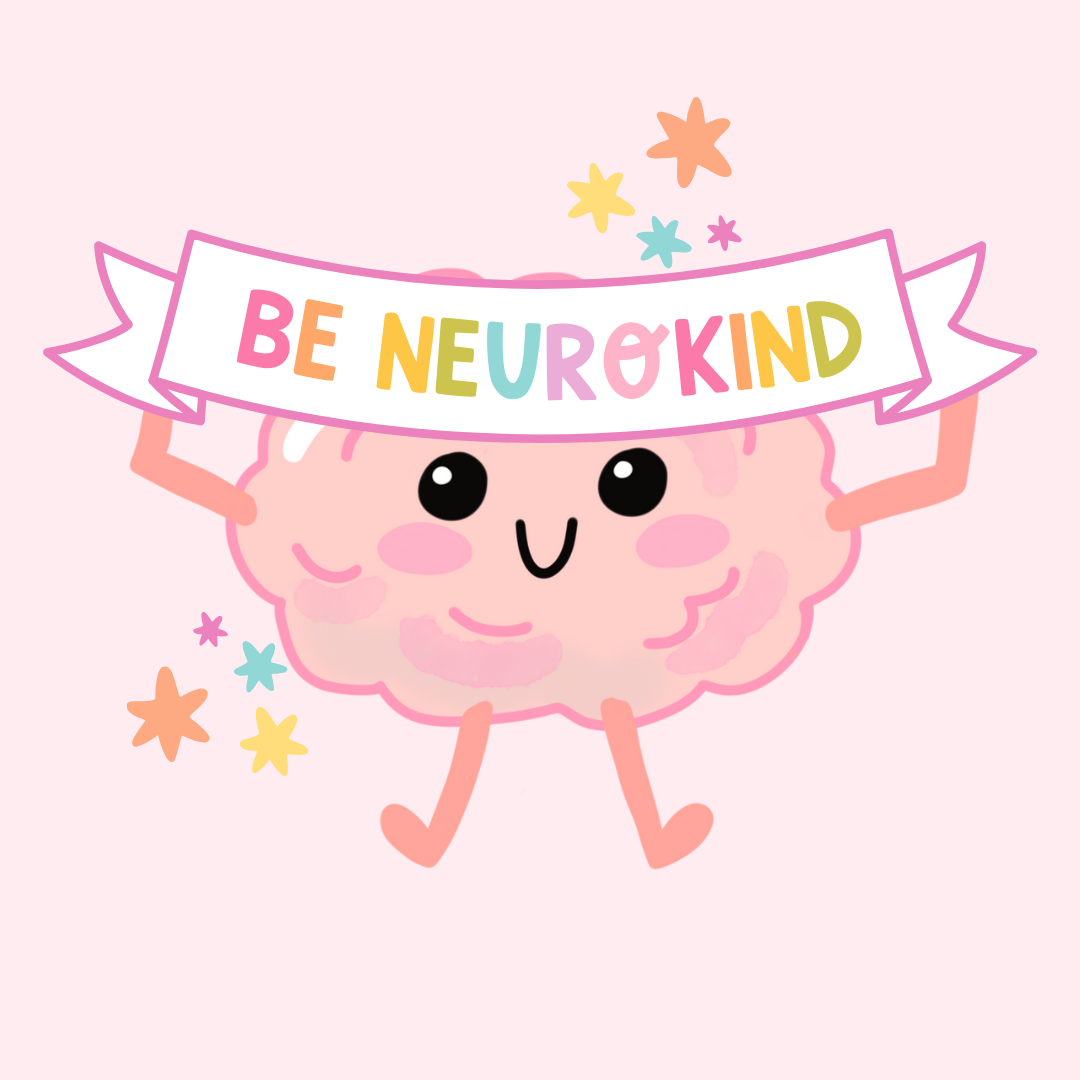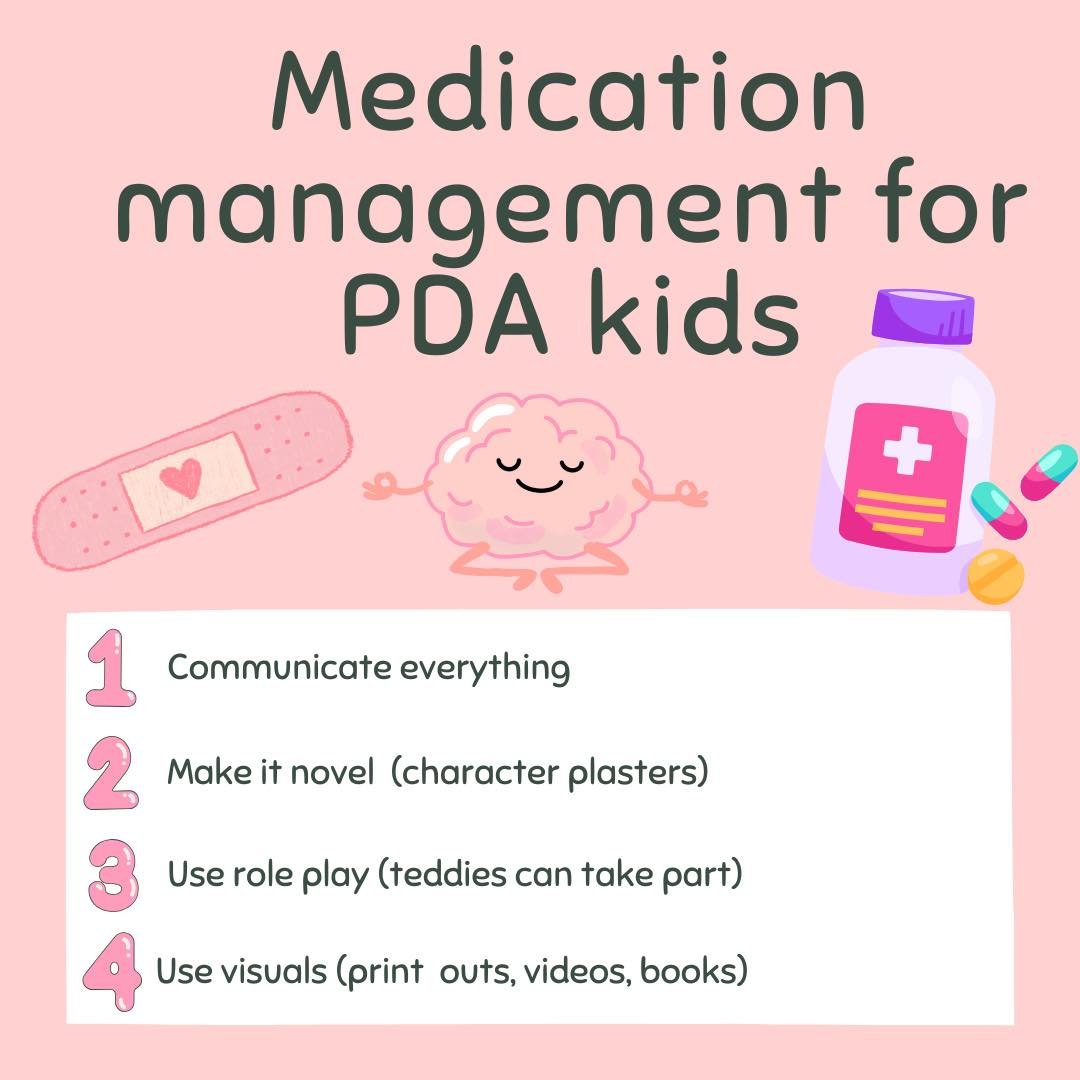Me and Chloe were chatting the other day about how she has become much more confident in taking medication now she is much older, mostly because she is fully aware of her body and can assess things better with the knowledge she has she knows that it will help improve her health and she can see it making a difference, the sad thing is now for us is obtaining anything due to NHS waiting lists, cut backs and funding and just the current state of the uk system with health care for neurodivergent individuals.
This aside we chatted about how she used to be when she was very young and the difficulties we faced as a family trying to get her onboard with taking any medication. Somethings worked and somethings did affect trust so we had to learn quickly and build that trust up again. She knows now we desperately didn’t want her to be sick but at the time she didn’t know why we were pushing so many things when she said no.
It’s very difficult as a parent that knows that medication (we are talking antibiotics and medicines when she was ill etc) will benifit and aid a child but when they are refusing and the health is deteriorating what do you do?
Here are some things that’s worked for us:
* Plasters: we had refusal for a long time to use them so we had to clean the area and use wet tissues or a cloth as that is all she would allow, what we then did was buy a doctors set for Chloe and fun character plasters, we used role play on her teddies, even ourselves we would bump ourselves and say oh I may need a plaster and then it was fun choosing which character plasters we had, even her friends if hurt themselves we would offer a character themed plaster and they found it novel, this seemed to work and when an injury happened we would offer a the choice and size. We also made a special plaster kit she took into nursery where if anything happened there she had her safe plasters as she would refuse others.
*Medicine: for us this was very tricky as taste and restricted diet meant adding anything new would be incredibly difficult. Calpol we managed as a magic bottle that made things go away and we bought a fun medicine spoon, again it was a character she liked and she chose the spoon giving her some control. Other forms of medicines were harder, we tried disguising some in her drinks which backfired eventually, although worked for a while the banana antibiotic we hid in banana milkshake - now she doesn’t like milkshakes  as it triggers that memory of mistrust. We used to put movicol in water so she refused water so we then put it with squash but because she needed to drink so much of it she became heavily reliant on drinking squash and had a very unhealthy mistrust on drinking water, this got better in time by being around other friends who enjoyed drinking water and now she doesn’t have squash.
as it triggers that memory of mistrust. We used to put movicol in water so she refused water so we then put it with squash but because she needed to drink so much of it she became heavily reliant on drinking squash and had a very unhealthy mistrust on drinking water, this got better in time by being around other friends who enjoyed drinking water and now she doesn’t have squash.
*Options: by giving her options when she takes the medication, after lunch or after tea so she knows the medication taking is happening but she has control when so it isn’t a surprise.
*Treats: This can work sometimes but it can be deemed a demand so this would be with care, what we did was not promise a treat as that would make the task demanding but when she did the task of taking medication that we would treat her with something she liked for being very brave and trying something new just to cement the fact that she did something that was very difficult for her and we were proud she tried, even if it was just trying.
*Ask for alternatives from the doctors, explain your child is autistic and struggles taking medication, usually the cheapest is offered more frequently so a liquid form maybe available or a tablet form or a powder of what they need, explain what your child will and won’t take so the doctor can prescribe something that can work.
* Tablets, for us this was hard as Chloe would only take very small tablets and anything paracetamol sized or more would be a no or allot of anxiety beforehand. It was only because her pain became bad and what she was using was not working that she made the choice to start trying tablet forms. This has all been recently and she is 17! we have always managed by asking doctors for alternatives and usually they are not offered as they are more expensive so lots of communication with GPs are needed. Having a tablet box in her favourite colour and a routine has helped her keep taking her tablets, it also helps that I have a tablet box of my favourite colour and I take my medication the same time so she is learning by seeing too.
* Communication : By explaining what is happening with their bodies, getting their GPs to use age appropriate language so they have access to the information so they have full understanding what is happening, explaining what the medication is and how long they need to take it, just having all the facts can decrease the amount of anxiety.
* Visuals using resources that could be books, posters, print outs that explain the process or help with understanding what to do when they are sick (we are in the process of creating a when I feel sick kit) programs about medical care might be helpful that can show individuals that having healthcare can improve their health and by seeing that medicines etc can help
* Understanding: neurodivergent children will be heavily disregulated, will have sensory overwhelm and anxiety will be very high, their routines will be impacted by feeling ill so making sure their feelings are validated, heard and that there is more patience needed, allowing them to rest more, switch off more and utilise this time to focus on their interests.
* Remove other demands, if they are sick and need to take medication then their emotional bucket will be very full, any tasks or demands or seeing people that can be taxing at this time should be removed to allow them to get better quicker, a stressed body takes longer to heal.
Please feel free to add anything that’s has worked or not worked for you so readers can benifit form lived experiences.
*Try not to hide, disguise medication unless absolutely necessary as can cause distrust and connection and can affect future dietary restrictions and cause triggers.
- please note this is not professional advice this is from our lived experience and what has worked for us.



Comments ()